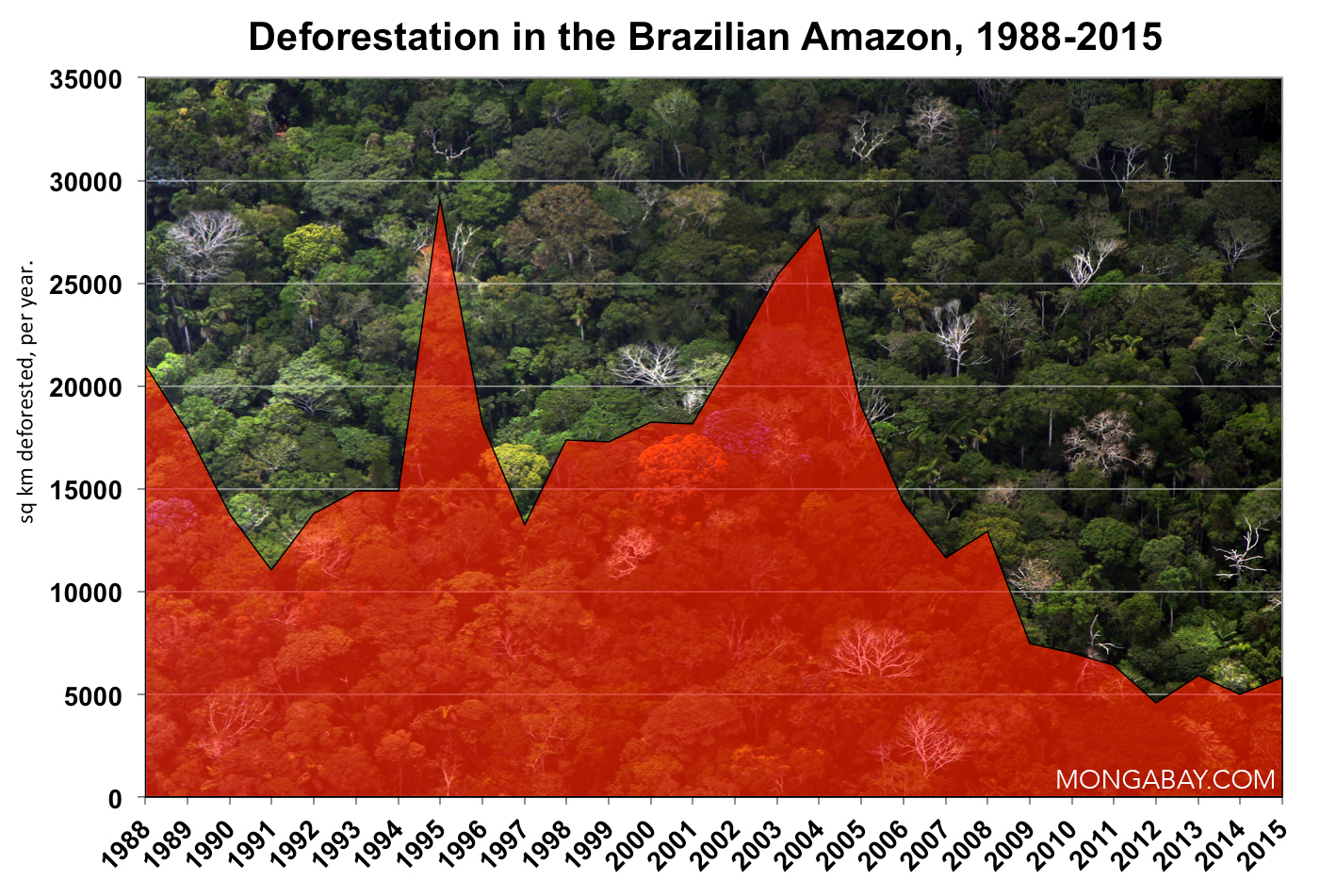- Planting new trees and restoring deforested land contributed nearly four-fifths of that windfall, some R$16.1 billion ($4.27 billion).
- Sustainably produced forest products contributed another R$4.6 billion ($1.2 billion).
- Brazil’s President Dilma Rousseff has committed to restoring 12 million hectares (nearly 30 million acres) of forest by 2030.
Brazil’s Statistics Bureau, known as IBGE, says that reforestation and sustainable forest management provided the country with R$20.8 billion (about $5.5 billion) in revenue last year, according to The Rio Times.
An IBGE study found that planting new trees and restoring deforested land contributed nearly four-fifths of that windfall, some R$16.1 billion ($4.27 billion). Sustainably produced forest products contributed another R$4.6 billion ($1.2 billion).
The regions where reforestation projects were most prevalent are the Amazonian states of Rondônia and Pará, in the north and northeast of Brazil, The Rio Times reported.
Brazil has reduced deforestation drastically over the past decade, thanks in part to $1 billion in funds provided by Norway to Brazil’s Amazon Fund. The amount of Amazon rainforest lost in 2014 was 75 percent below the 1996-2005 baseline, for instance, though there are signs that deforestation rates have started to climb again.
Research has shown that reduced rates of deforestation in Brazil might save as many as 1,700 lives every year.

Restoring forests that have already been cleared is a key component of Brazil’s strategy to halt deforestation and tackle climate change, since emissions from deforestation means massive amounts of additional greenhouse gases pouring into the atmosphere.
Brazil’s President Dilma Rousseff committed to restoring 12 million hectares (nearly 30 million acres) of forest by 2030 as part of efforts to reduce carbon emissions in a joint announcement with US President Barack Obama last June.
President Rousseff also pledged to eliminate illegal logging altogether by 2030. A study in Indonesian Borneo earlier this year found that reforestation programs can actually help curb illegal logging by shifting local communities’ relationships to the forests.
Environmentalists were critical of the targets announced by Rousseff, however, saying they amounted to little more than enforcing existing law — and in some cases, not even fully implementing those laws.
For instance, Greenpeace Brazil, which presented the Brazilian Congress with a draft zero deforestation bill co-signed by more than a million people last month, said that the reforestation target represents only half of what is required under Brazil’s Forest Code.
“With her fragile commitments (or non-commitment), Dilma goes against the will of at least 1.2 million people who have already given their support to a bill for true zero deforestation,” the group said.








